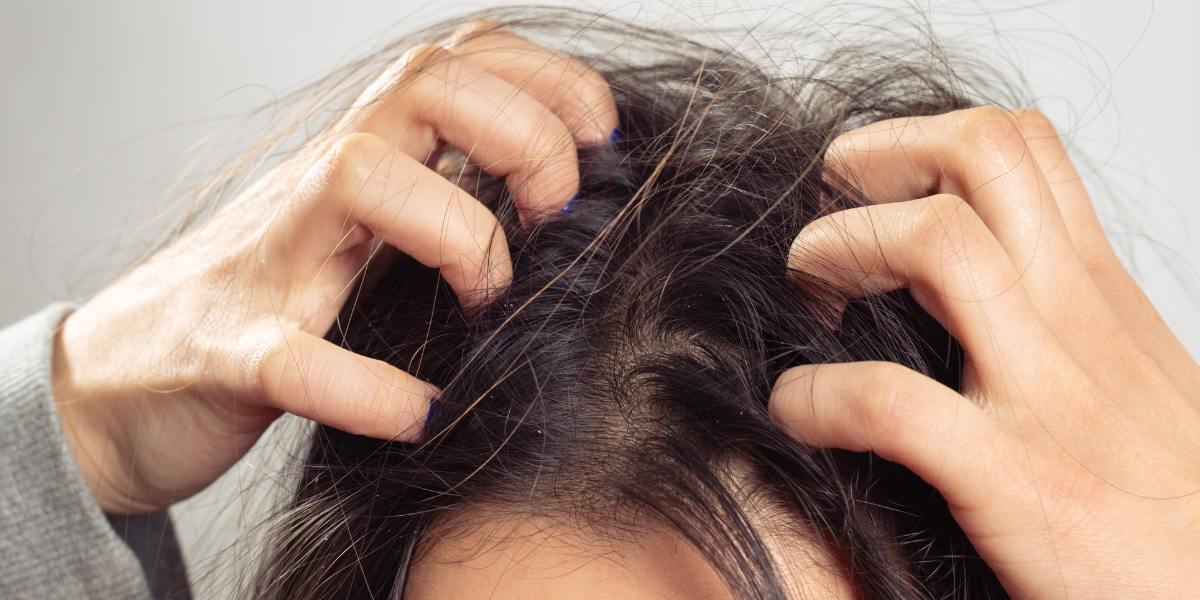Hair loss is a complex and often multi-factorial condition that nearly 80% of men will experience in their lifetime, yet there are many processes relating to hair loss that we still don’t fully understand. One of these being scalp inflammation. Inflammation is a term you’ve likely come across relating to other illnesses or injuries, but what exactly does it mean for your scalp and how can it impact overall hair health?
We’re going to explore this topic, identifying a variety of conditions associated with scalp inflammation. We also hear from Dr. Christina Han, a board-certified dermatologist and XYON’s medical director, as she gives us her expert advice on managing scalp health whilst taking hair loss medications. Dr. Han also touches on steps you can take to avoid or minimize scalp inflammation.
How scalp inflammation can impact your scalp and hair health
As a mechanism of the immune system, inflammation is a process designed to protect the body from foreign microorganisms that can cause infections and prevent further damage. However, if the immune system malfunctions, it can trigger excessive or uncontrolled inflammation which can damage healthy tissues in the body, including hair follicles and the structures that support them.
If you’re experiencing scalp inflammation, you might notice that your scalp becomes itchy, red and sometimes painful. Scalp inflammation is actually a hallmark symptom of a variety of different conditions and when left untreated, can become chronic.


Our Hair Loss Solutions Are Designed For Scalp Health
XYON Offers Topical Prescription Hair Loss Medication As Well As Non Prescription Shampoos And Serums, All Designed To Be Easy On Your Scalp
What causes scalp inflammation?
Let's take a look at some of the most common causes of scalp inflammation.
Seborrheic dermatitis
Seborrheic dermatitis is an inflammatory skin condition which can develop due to a range of factors, but it’s predominantly associated with an overgrowth of a yeast called Malassezia spp. (Tucker & Masood, 2024). Much like the gut, your scalp has its own ‘ecosystem’ of microorganisms, known as the microbiome. This acts as a protective layer for your scalp, shielding hair follicles from infections, irritation and other toxins.
Malassezia spp. is a species of yeast found on around 90% of the population's scalp (Levin, 2009), but overgrowth of this yeast seems to trigger an immune response that leads to inflammation and irritation on the scalp (Kim, 2009). Overgrowth of this yeast is the main proposed mechanism of seborrheic dermatitis and leads to symptoms including:
- Itching
- Redness
- Flaking of the scalp (dandruff)
- Scaly skin – patches of oily, yellowish scales on the scalp.
Folliculitis
Folliculitis is another common skin condition which can cause inflammation on the scalp, specifically at the hair follicles. It’s typically caused by a bacterial or fungal infection and it's characterized by small, pus-filled bumps on the skin which can be itchy. When found on the scalp, folliculitis generally impacts the follicles along the hairline, forming bumps that can become crusted over and in some cases, may lead to hair loss. Folliculitis can also develop in other areas of the body.
Scalp ringworm
Tinea capitis, or scalp ringworm, can develop due to fungi called dermatophytes. It leads to a dry, itchy and inflamed scalp, as well as circular patches of hair loss. In more severe cases, tinea capitis can cause the formation of painful lesions known as kerions, which are large, inflamed patches of redness that can ooze and become crusted. This is an immune response to dermatophytes and it can result in scarring (permanent) hair loss.
Psoriasis
Psoriasis is an autoimmune condition, commonly associated with inflammation that causes the skin cells to generate much faster than normal, leading to a build-up of skin cells. This can occur on all areas of the body, producing symptoms of scaly, dry patches of skin that may become red and irritated. Around 45-56% of people living with psoriasis have scalp psoriasis and because of the itching that often accompanies it, hair follicles can become damaged over time (Merola et al, 2016).
Can scalp inflammation cause hair loss?
Whilst inflammation isn’t considered the primary cause of hair loss in the same way that genetics and hormones are, more and more research is implicating inflammation as a factor involved in some types of hair loss. We asked Dr. Han to explain the link between inflammation and hair loss:
Scalp inflammation typically doesn’t directly cause hair loss, especially in mild cases. However, there have been some rare reports of more severe inflammation with scaling, which can lead to hair loss. More specifically, a condition called pityriasis amiantacea, primarily characterized by scaling and underlying inflammation +/- infection, can result in hair loss. This reinforces what we know about the scalp being a vital component to overall hair health.
Hair loss treatments and scalp irritation
As with any medication, there is a risk of side effects when taking any hair loss medication and this can include scalp irritation, which is most common with topical medications. But this doesn’t necessarily mean that you’re out of options when it comes to treating your hair loss. Dr. Han told us that it is advisable to stop treatment and let any irritation settle, but once it has settled there are a couple of things you can try, to see if you can reduce irritation. She recommends the following to her patients:
Firstly, applying your treatment a couple of hours after washing your scalp can help to reduce the chance of irritation, as opposed to applying immediately after showering. This is related to allowing your own oil production to build-up on the scalp, which can help to offset any irritation.
Secondly, you can use a light scalp serum as a barrier prior to application of your hair treatment and this can also function as a protective layer for your scalp.
Finally, avoiding products that contain alcohol as a base can reduce the chances of an irritated scalp, as alcohol can be quite drying and strip the skin of its natural oils. A gel base tends to be more hydrating and can reduce the likelihood of experiencing any irritation.
Managing scalp health while taking hair loss medication
As we’ve established, the scalp plays a crucial role in the overall health of hair and as such, it’s important to maintain a healthy scalp which is free from inflammation. To give your scalp the best chance when taking a hair loss medication, Dr. Han recommends taking these steps:
Having a good understanding of any specific scalp concerns is important. For example, whether the scalp is dry or oily, with flaking, itching or bumps are all concerns that require specific attention. Finding products that help to address these would be a good next step. Many products out there are formulated with ingredients that help to target specific scalp problems and they can act as a great supportive adjunct, alongside your hair loss treatment.
Finally, using shampoo, conditioner and scalp serum regularly will help you to maintain a healthy and clean scalp, free from flaking, itching and inflammation. For some, this can mean applying these products daily, while others may not need them as regularly. It’s also a good idea to try and minimize factors that put more stress on existing hairs, such as heat, chemicals/hair dye and tight hair styles.
Another factor to consider when it comes to scalp and hair health and inflammation in particular, is diet. As with other areas of the body, the scalp and hair require certain nutrients to maintain healthy growth and a balanced scalp microbiome.
When it comes to whether your diet can help to reduce scalp inflammation, Dr. Han says that it can go a long way, adding:
Implementing a healthy diet can be integral to your overall health, even your scalp health. There is some evidence that certain foods can promote more inflammation in the body and these can include alcohol consumption, processed foods, high sugar foods and artificial trans fats. Reducing or eliminating these can help to reduce the triggers for inflammation in the body, including the scalp.
Takeaway
Scalp inflammation can occur as a result of a variety of health conditions and although it isn’t directly linked to hair loss, when coupled with other factors it may result in hair loss. It’s important to take the necessary steps to manage your scalp health and give your hair the best chance of healthy growth. If you’re experiencing scalp irritation and inflammation with your hair loss medication, you should speak to your prescribing physician immediately. In the meantime, maintain a regular haircare routine and opt for ingredients that target your specific scalp concerns.
References
Kim, G.K. (2009). Seborrheic dermatitis and Malassezia species. Journal of Clinical And Aesthetic Dermatology, 2(11), 14-17. 20725575
Levin, N.A. (2009). Beyond spaghetti and meatballs: Skin diseases associated with the Malassezia yeasts. Dermatology Nursing, 29(1). https://pubmed.ncbi.nlm.nih.gov/19283956/
Merola, J.F., Li, T., Li, W.Q., Cho, E., Qureshi, A.A. (2016). Prevalence of psoriasis phenotypes among men and women in the USA. Clinical and Experimental Dermatology,41(5), 486-489. 10.1111/ced.12805
Tucker, D., Masood, S. (2024) Seborrheic Dermatitis. In: StatPearls, Treasure Island (FL). https://www.ncbi.nlm.nih.gov/books/NBK551707/




